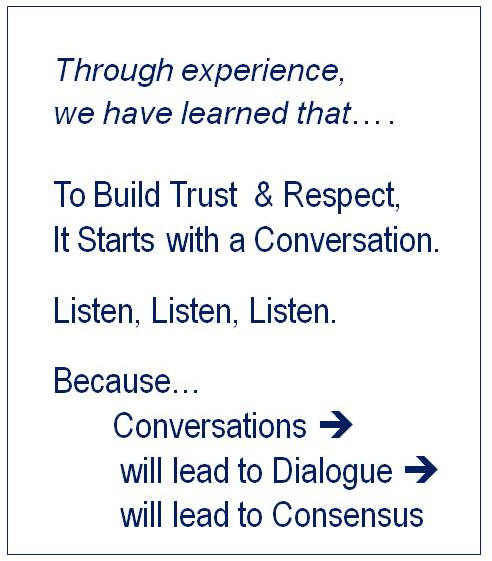Reflections on Inter-Generational Learning: “Today, how does any young professional truly learn his or her trade when so much of daily life revolves around the use of ‘apps’ for instant answers or solutions?” pondered Wally Wells when reflecting on what it means to be a professional engineer
Note to Reader:
The September 2017 issue of the Asset Management BC Newsletter included an article co-authored by two “old guys” (Wells and Kim Stephens) and one “young guy” (Cory Sivell). The article elaborates on challenges identified by Wells and Stephens in an Op-Ed published in the June 2016 issue.

Challenges
The main challenge is ‘integration’ and getting every discipline to recognize each others’ contribution plus get the organization working together on a common path. Another challenge is communicating and understanding the message. The work environment is changing with time as are the methods of communicating and the form of the messages.
The Discussion
 “Two very mature (meaning ‘old guys’), got discussing this at length. We were fortunate to have a young guy join the conversation with whole bunch of fresh new ideas and thoughts,” wrote Wally Wells, Executive Director, Asset Management BC.
“Two very mature (meaning ‘old guys’), got discussing this at length. We were fortunate to have a young guy join the conversation with whole bunch of fresh new ideas and thoughts,” wrote Wally Wells, Executive Director, Asset Management BC.
“Yes, all three of us are engineers but we come from quite different generations. We quickly realized that, while we needed to understand the same things, the way we traditionally communicate is quite different. Therefore, the interpretation or understanding of the result can be quite different without really even realizing it.”
On Learning to be a Professional
 “The conversation with the young guy took an interesting twist when we old guys recounted what the world was like at the beginning of our careers,” wrote Kim Stephens, Executive Director, Partnership for Water Sustainability in BC.
“The conversation with the young guy took an interesting twist when we old guys recounted what the world was like at the beginning of our careers,” wrote Kim Stephens, Executive Director, Partnership for Water Sustainability in BC.
“We were called junior engineers and we were mentored by senior engineers. In that era, we explained, the accepted wisdom was that it took 5 to 10 years on-the-ground experience to develop professional judgment and mature into a fully rounded ‘project engineer’.”
Contrast with Instant Gratification
 “After we old guys painted this picture, which is centred on the notion of ‘serving your time’, the reaction of the young guy was immediate,” continued Kim Stephens.
“After we old guys painted this picture, which is centred on the notion of ‘serving your time’, the reaction of the young guy was immediate,” continued Kim Stephens.
“That is not appealing, it is not exciting, he stated. Is the nature of your response a reflection of the instant gratification ethic that characterizes society today, we queried. Yes, Cory acknowledged.”
To Learn More:
Download Reflections of Intergenerational Learning, Or Not? to read the article co-authored by Kim Stephens, Wally Wells and Cory Sivell.


